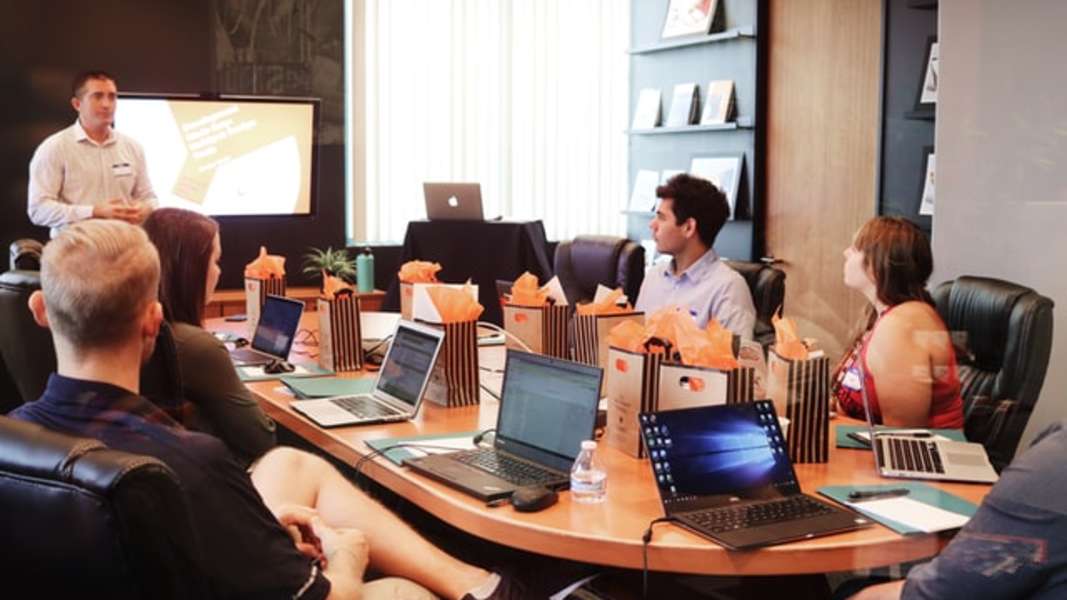
How To Hire A Consultant
April 27, 2022

A consultant is someone who provides professional advice to a business or individual in order to help that business or individual perform better. They are often experts in a particular field.
Consultants are usually brought into businesses to help them get an objective view of what might be failing, and to give practical advice on how to do things better. They're essentially 'fixers', who use their innate expertise and abilities to solve problems, and as a result, can add a huge amount of value to companies looking to improve in certain areas.
Whether you're looking to hire a consultant on a fixed-term or permanent basis, this article will help you determine what attributes and traits you need to look for in your applicants, and what skills you should test for to help you make a final decision.
What should a consultant be able to do?
A consultant's main role is to investigate, observe and analyse what they see before them, before making strategic recommendations that will help an individual or business work towards agreed objectives. They will normally be experts in a particular area or field, so they need to be able to demonstrate evidence of this to ensure they'll be up to the demands of the role.
A consultant's role will always involve a lot of observation, so they'll need to be able to document their findings and prepare recommendations — whether that's for new technical systems, internal procedures or even wider structural changes. In this respect it's important they have a wide-ranging understanding of the area they're consulting in.
Data analysis is another key skill a consultant needs to be able to demonstrate, as it will form a large part of their day-to-day work.
People management and relationship building are really important too, since consultants need to be able to get under the skin of a business to really understand the changes they suggest implementing.
Being able to sell suggestions and get people on board with their recommendations is another key skill, and one that separates great consultants from average ones.
Skills to look for in a consultant
When hiring a consultant, it's important to try to identify the following skills through interview questions and aptitude and soft skill testing:
Ability to use Microsoft Office suite: in order to fulfil the wide range of tasks required of a consultant, it's important your applicants are able to demonstrate confidence with most, if not all, programmes in the Office suite.
Problem-solving: consultants are by nature problem solvers. They should be able to prove their ability to think calmly and logically in order to come up with useful solutions to issues big and small.
Confidence with development or planning software: it's important consultants are either comfortable with the specific planning or development software they'll need to use or can pick it up very quickly in order to progress projects and present findings back to key stakeholders.
Speaking and active listening: two essential communication skills for all good consultants due to the social nature of the role, and the importance of building trust and respect with people they're working with or for.
Critical thinking: prospective consultants will need to show they can use both logic and reasoning to identify alternative solutions to problems.
Useful abilities for a consultant
Being a consultant has many challenges. There is a huge range of different attributes, skills and abilities you need to have and be able to draw on to meet the requirements of the role. A good consultant should be able to show they have the following abilities:
Good communication skills: as well as presenting important information in formal situations, consultants will have to be comfortable having conversations with stakeholders of all levels and in many different roles in order to do their job as best they can.
Written comprehension and expression: strong written skills are a must. Consultants will need to be able to show evidence they can write, spell and use grammar correctly.
Inductive reasoning: inductive reasoning skills are really important in this role. This is the ability to make a general assumption or conclusion based on specific evidence.
Logical thinking: consultants are known for being logical thinkers and it's important they're able to demonstrate this as an innate ability. However, being able to think outside the box and take calculated risks can also be a really important trait to look for in a prospective consultant.
Which soft skills tests could I use to hire a consultant?
As well as specific skills and qualifications, consultants need to be able to show they have the right combination of soft skills to help them do their job effectively. These could include, but are not limited to:
Interpersonal skills: this test examines a candidate's social skills, and ability to work as part of a team. Candidates will be presented with a series of hypothetical workplace scenarios and asked to use their judgement to showcase what they think the best and worst ways to respond would be. This enables recruiters and hiring managers to get a better sense of the type of people they're assessing, and whether they seem like they'd fit into the team.
Time management: consultants need to be able to manage their time effectively while juggling multiple conflicting priorities. A time management test can help you identify whether the candidates in front of you can demonstrate good judgement, planning and organisation skills.
Teamwork skills: it can be hard to assess soft skills like teamwork without a dedicated test. The teamwork test poses hypothetical challenges and situations and asks candidates to select the response that is most similar to what they'd do in real life. It can help you to see how well someone will work with others, and even identify potential leadership qualities.
Which technical or aptitude tests could I use to hire a consultant?
Aptitude and technical tests help you identify whether candidates have the knowledge and skills to meet the practical demands of the job. They can be really useful for positions such as consultancy, where it's often important that people are skilled in multiple areas. These are a few of the aptitude tests we'd recommend setting when you're looking to hire a consultant:
Logical reasoning: logical reasoning is the ability to use innate logic to solve complex problems, challenges and puzzles. Consultants spend a vast majority of their time looking for solutions to issues, so this is a really good test to use to see if your applicants have what it takes.
Microsoft Office: whether it's Microsoft Word, Microsoft PowerPoint or any of the other Microsoft programs, it's highly likely the consultant you hire will need to demonstrate knowledge and understanding across the Office suite in order to carry out the various requirements of the role.
Our recommended test battery for a consultant
Hiring a consultant is best achieved through a mix of insightful interview questions and tests. We'd recommend the following combination of tests:
Logical reasoning: this will help you ensure the person you hire is able to problem solve and draw conclusions from limited amounts of information — essential skills for any consultant.
Interpersonal skills: working with others is a key requirement for a good consultant and this test will give you confidence that you're hiring someone who can work well with others.
Time management: it's important that a consultant is able to prioritise effectively and make deadlines, this test will help you assess this.
Microsoft Office: a range of software applications are part of the Microsoft Office suite that are business essentials. This includes Microsoft Word, Microsoft PowerPoint.
For more information on hiring a consultant, check out Neuroworx's consultant test guide.
Boost your hiring power.
Start using Neuroworx today.
Talk is cheap. We offer a 14-day free trial so you can see our platform for yourselves.
Try for free




